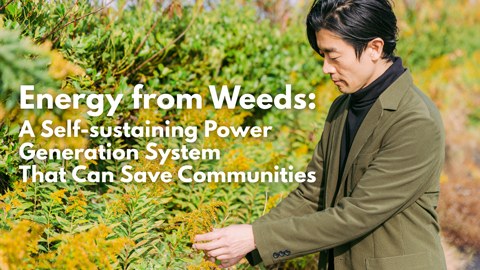A Japanese researcher has been promoting a method called the ecological purification system to purify water utilizing the activities of small organisms. What is this low-tech but smart solution that produces safe and affordable drinking water to help protect people’s health?
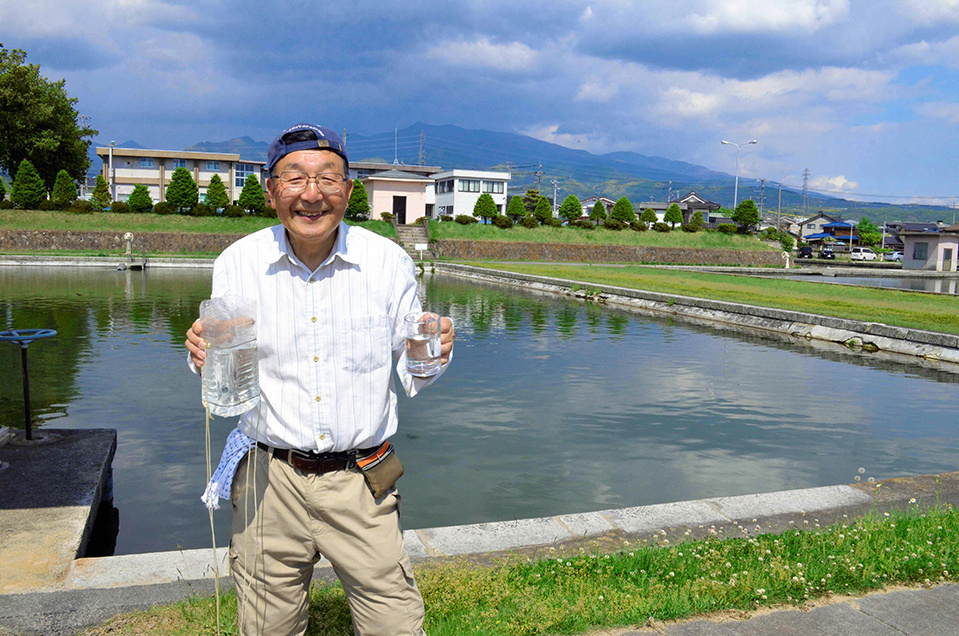
NAKAMOTO Nobutada, who has been disseminating the ecological purification system within developing countries, is pictured at the Someya Water Treatment Plant in Ueda City, Nagano Prefecture, where he has been conducting research for decades. The plant uses the ecological purification system (EPS). After 100 years of operation, the plant is still delivering clean water to citizens. THE ASAHI SHIMBUN
Ensuring access to safe and affordable drinking water is one of the United Nations’ Sustainable Development Goals (SDGs), but it has yet to be achieved for 2 billion people worldwide.
“In places without safe access to this vital resource, slight improvements to water for drinking and cooking can reduce instances of diarrhea or dermatological diseases. You’ll then see a change in people’s health awareness. The key is promoting sustainable, do-it-yourself technologies and fostering awareness,” says NAKAMOTO Nobutada, Professor Emeritus of Shinshu University. As a leading researcher on biological purification through slow sand filtration, Nakamoto has worked to build sustainable water purification systems in such developing countries as Sri Lanka, Bangladesh, Fiji, and Samoa.
Slow sand filtration, a water purification technique invented in the U.K. during the 19th century, was thought to physically remove contamination by slowly filtering water down through pebble and sand layers. It was known that microorganisms in the upper layer of sand break down and remove pathogens and dirt, but Nakamoto, an expert on algae, noticed that algae also assisted in the process. The water became tastier when algae multiplied in copious quantities at a water treatment plant that had stopped using algicide. Through photosynthesis, the algae created an oxygen-rich environment in which microorganisms accelerate decomposition.
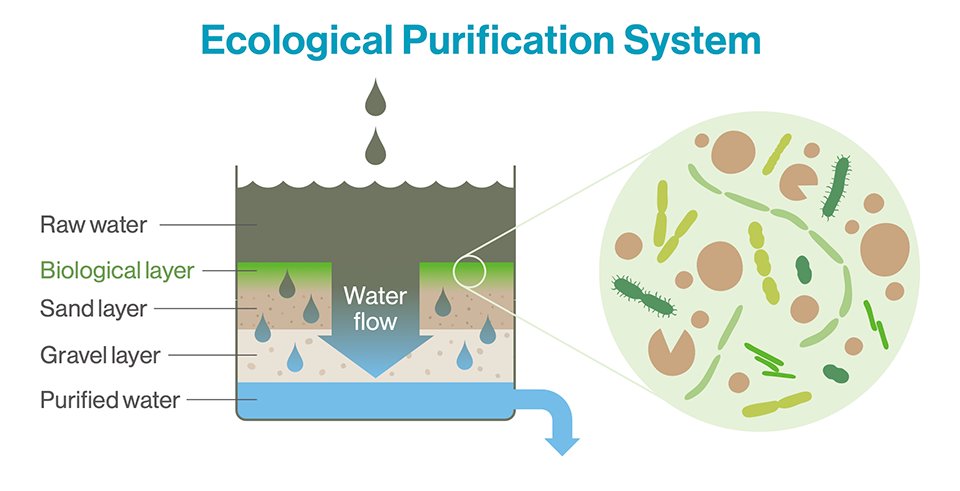
Nakamoto decided to rename the “slow sand filtration” process because of his assertion that the original term is not in fact associated with the food chain works as a filter, and that the actual purification in biological active layer takes less time than one might imagine. His new term for the process, then, is the “ecological purification system (EPS),” and he has been introducing it to the world.
Since the components of EPS can be constructed without the use of chemicals or machinery, and since it features easy maintenance and high resilience to disasters, the Japan International Cooperation Agency (JICA) has been working on transferring the technology to, and disseminating it within, developing countries. Nakamoto has cooperated with training programs in Okinawa Prefecture for trainees invited from Fiji and Samoa. He said, “It was good to hold the training in Okinawa. The trainees could drink real filtered water in a subtropical environment similar to their own, and realized that they could maintain such a system themselves.” Later, as one of JICA’s experts, Nakamoto visited the two countries to follow up on the training. There, he provided guidance to local managers and handed over simple illustrations that he had prepared to ensure that the technology would remain in use.
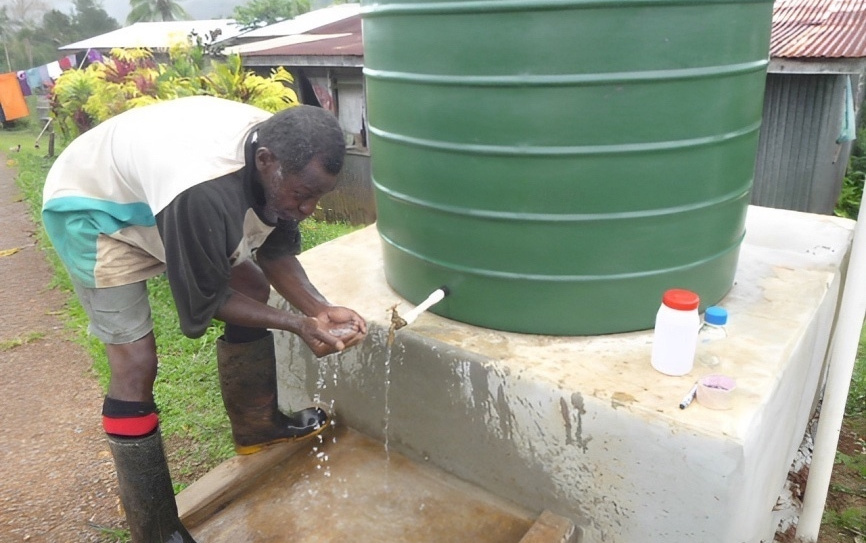
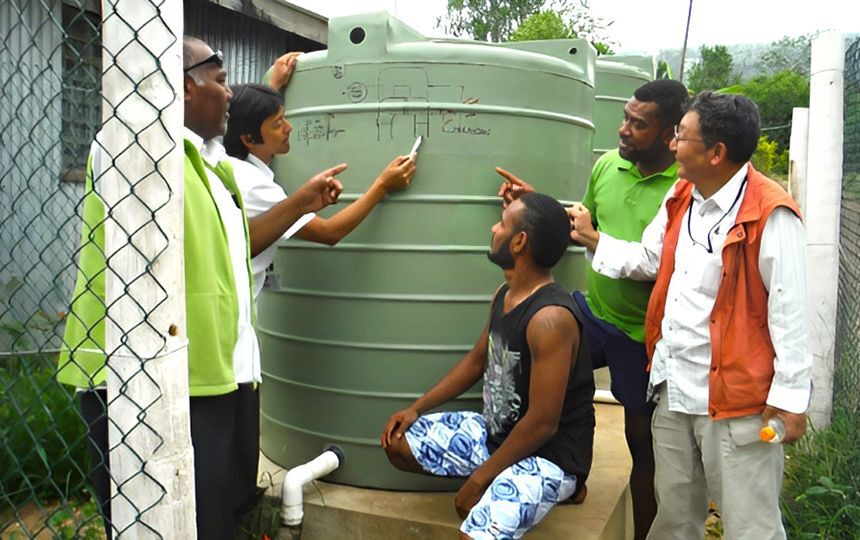
The Japanese government is promoting global health as a priority area of international cooperation. In the Global Health Strategy set forth in May 2022, it called for the strengthening of efforts toward tackling the world’s water and sanitation problems. JICA has been encouraging the use of EPS for water treatment. Nakamoto (right photo, far right) visited Fiji as a JICA expert and gave direct guidance to local officials. Since then, 100 Fijian villages have built biofiltration water purification facilities by using EPS.
The Japanese government is promoting global health as a priority area of international cooperation. In the Global Health Strategy set forth in May 2022, it called for the strengthening of efforts toward tackling the world’s water and sanitation problems. JICA has been encouraging the use of EPS for water treatment. Nakamoto (bottom photo, far right) visited Fiji as a JICA expert and gave direct guidance to local officials. Since then, 100 Fijian villages have built biofiltration water purification facilities by using EPS.
The Clean Water Supply System, a compact water purification system that Yamaha Motor Co., Ltd. is deploying in developing countries in Asia and Africa to solve water-related problems, also employs the ecological filtration method. The system has steadily spread because residents can manage it themselves. Currently, 45 units have been installed in 15 countries. Having safe, managed water available nearby will not only raise awareness of hygiene and prevent epidemics, but also free women and children from the heavy burden of fetching water.
Japan will continue to make international contributions to build societies in which all people have sustainable access to safe water.




























